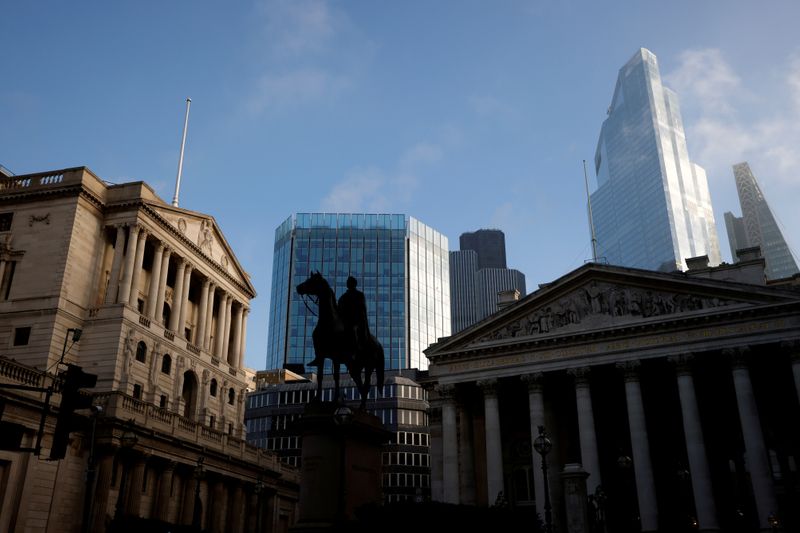LONDON (Reuters) - Britain, which left the European Union in January, loses full access to the bloc under transition arrangements that end at 2300 GMT on Dec. 31.
The EU is Britain's biggest financial services customer, worth about 30 billion pounds ($40 billion) a year. The relationship has helped keep London one of the world's biggest financial centres and a contributor to British tax revenues.
Britain and the EU hope to reach a free trade agreement this week but financial services are being dealt with separately.
The following are details about how the City of London's ability to access the EU and serve clients in the bloc will change.
WHAT CHANGES IN JANUARY?
From the start of 2021, blanket access for British financial firms to the EU ends and will be replaced by an EU system known as equivalence.
WHAT IS EQUIVALENCE?
This refers to an EU system that grants market access to foreign banks, insurers and other financial firms if their home rules are deemed by Brussels to be "equivalent" or as robust as regulations in the bloc.
It is a patchy form of access that excludes financial activities like retail banking. British banks are already warning customers in the bloc their accounts will be closed.
It is a far cry from continued "passporting" or full access that banks lobbied for in the aftermath of the 2016 referendum when Britain voted to leave the EU.
Access under the system of equivalance can be withdrawn at one month's notice, making it unpredictable.
HAS EQUIVALENCE BEEN GRANTED?
With just six weeks to go, Brussels has only granted equivalence so far to derivatives clearing houses in Britain from January for 18 months.
Faced with limited or no direct access, financial firms in London have already moved 7,500 jobs and a trillion pounds in assets to new EU hubs to avoid disruption to EU clients.
Trading stocks, bonds and derivatives will be split into less efficient British and EU "pools", if there is no equivalence by January. Britain and the EU have agreed that asset managers in London can continue to pick stocks for funds in the EU.
WILL EU FINANCIAL FIRMS HAVE TO LEAVE LONDON?
To help maintain London as a global financial centre, Britain is allowing EU firms to stay for up to three years, in the hope they will apply for permanent UK authorisation. Britain is also unilaterally allowing financial firms in the EU to offer selected services like credit ratings directly to British customers.
Britain will allow UK investors to use share trading platforms in the bloc to maximise choice.
WHAT'S ALL THIS TALK ABOUT DIVERGENCE?
Brussels says it has not decided to offer equivalence more broadly yet because it wants reassurances that British rules will stay similar to those in the bloc to avoid Britain potentially having a competitive edge over the EU.
Britain has said it won't apply some EU rules it inherits, will tweak others like insurance capital norms and will introduce its own version of pending European regulation for investment firms.
It has also begun a root-and-branch review of regulation and wants to make listing rules more friendly to attract tech firms from across the world.
Britain insists it won't lower standards and will stick to rules agreed at the global level.
WILL BREXIT END LONDON’S REIGN AS EUROPE’S TOP FINANCIAL CENTRE?
For now, no. London still has a towering lead over rivals Frankfurt, Milan and Paris when it comes to trading stocks, currencies and derivatives, or playing host to hundreds of major asset managers.
Financial firms say shifting more capital out of London than is necessary under Brexit would cause unnecessary and costly market fragmentation.

But in the longer term, if the EU takes a tough line on equivalence and its financial centres reach a critical mass in trading key asset classes, the attractions of London as a financial hub would diminish.